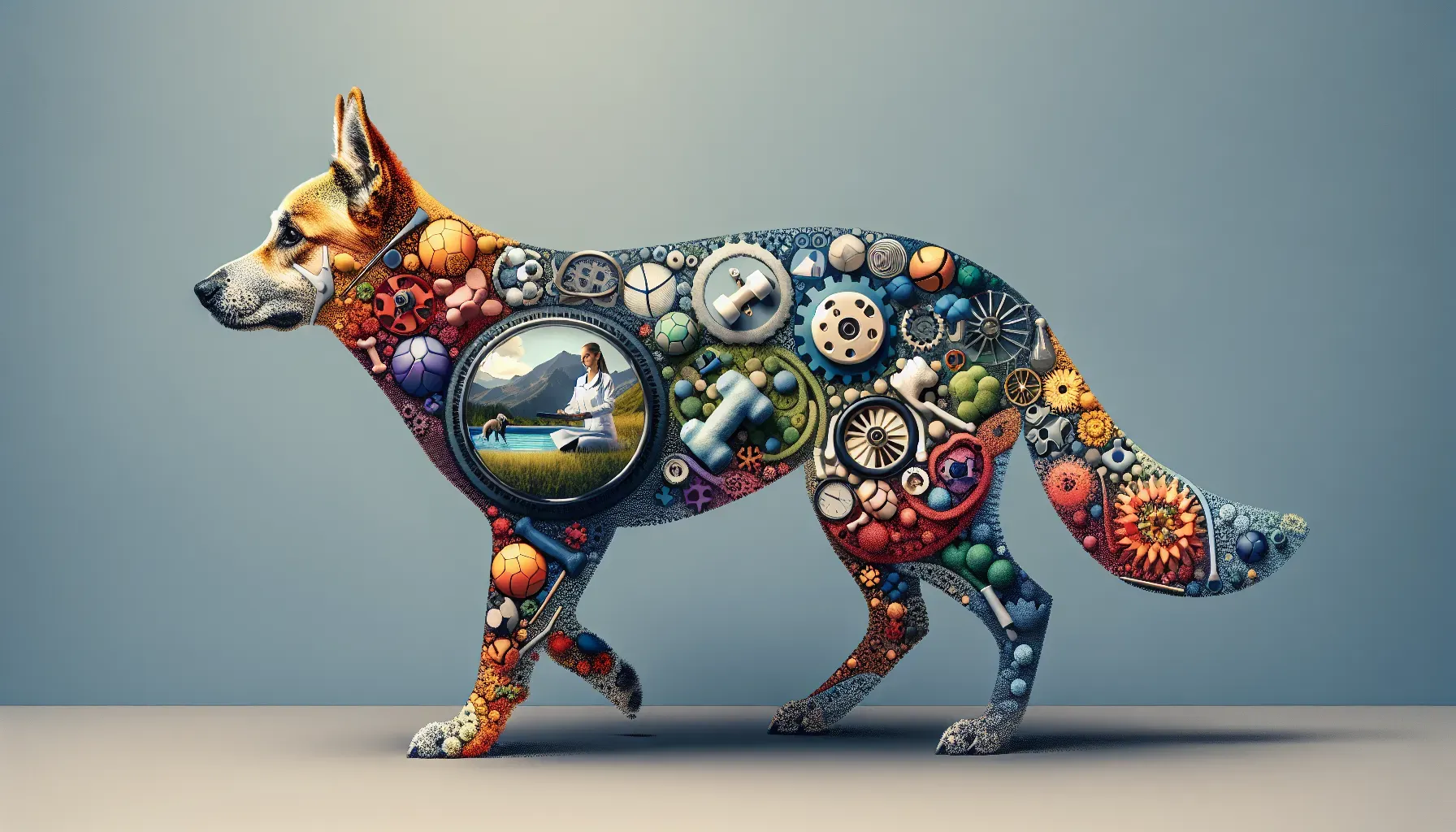
Diving Into Pet Physiotherapy: Skills, Training, and Impact
Pet physiotherapy, also known as animal physical therapy, focuses on restoring mobility and functionality in pets through targeted exercises and interventions. A successful pet physiotherapist requires a blend of compassion, patience, and a profound understanding of animal anatomy and physiology.
Professionals in this field undergo extensive training to comprehend musculoskeletal structures, neurological functions, and common conditions that affect pets. They are also adept at devising personalized rehabilitation plans tailored to each animal's unique needs. The impact of pet physiotherapy is profound, enabling pets to recover from injuries, manage chronic conditions, and regain overall vitality.
Within pet physiotherapy, techniques such as manual therapy, therapeutic exercises, and modalities like laser therapy and electrotherapy provide non-invasive yet effective solutions for various orthopedic and neurological issues.
Canine Hydrotherapy Explained: Enhancing Pet Wellness through Water
Canine hydrotherapy harnesses the therapeutic properties of water to aid in the rehabilitation of pets. Whether in a pool or underwater treadmill, hydrotherapy offers buoyancy, resistance, and low-impact exercise that is particularly beneficial for pets with arthritis, mobility issues, or post-operative recovery needs.
This form of therapy not only enhances physical conditioning but also provides mental stimulation for pets. Aquatic exercises help build strength, improve range of motion, and promote cardiovascular health. Moreover, the soothing nature of water creates a calming environment, which is especially beneficial for anxious or fearful pets.
Related Article: The Epistemology of Pet Care: The Knowledge Structure Underlying Effective Animal Wellness
The Role of Animal Behaviorists in Rehabilitation
Animal behaviorists play a pivotal role in pet rehabilitation by addressing behavioral issues that may hinder an animal's progress. These professionals possess a deep understanding of animal psychology and are skilled in identifying stress triggers, fear responses, and other behavioral challenges that may impede recovery.
Through behavior modification techniques, environmental enrichment strategies, and positive reinforcement training methods, animal behaviorists work alongside pet rehabilitation specialists to create a conducive environment for the overall well-being of the pets under their care.
Building a Career in Pet Acupuncture: Where to Start?
Pet acupuncture is an ancient therapy that involves the insertion of fine needles at specific points on an animal's body to stimulate natural healing processes. Aspiring pet acupuncturists embark on comprehensive training programs that encompass traditional Chinese medicine principles and hands-on acupuncture techniques tailored for animals.
The practice of pet acupuncture not only addresses physical ailments but also influences energy flow within the body, promoting balance and harmony. This holistic approach has gained recognition as a valuable adjunct to conventional veterinary care.
Related Article: Gene Editing for Tailored Pet Medicine: Charting its Transformative Influence and Ethical Repercussions Over Time
Veterinary Chiropractic Care: A Path Less Explored
Veterinary chiropractic care focuses on promoting spinal health and mobility in animals through hands-on spinal adjustments. Chiropractic care aims to alleviate pain, enhance nerve function, and facilitate optimal musculoskeletal performance in pets. Professionals in this field undergo specialized training to develop expertise in assessing spinal issues and administering safe chiropractic interventions for animals.
While not widely known compared to human chiropractic care, veterinary chiropractic has proven to be beneficial for animals suffering from conditions such as intervertebral disc disease, musculoskeletal imbalances, and gait abnormalities.
Success Stories from Pet Rehabilitation Specialists
The impact of pet rehabilitation specialists is exemplified through numerous success stories where dedicated professionals have transformed the lives of animals. From guiding a paralyzed dog to regain mobility through physiotherapy to alleviating chronic pain in aging cats via acupuncture, these professionals have demonstrated unwavering commitment towards improving the well-being of their furry patients.
Such success stories serve as inspiring testimonials that showcase the positive outcomes achievable through diligent rehabilitation efforts.
Navigating the Certification Landscape for Pet Rehab Experts
Becoming a certified pet rehabilitation specialist entails pursuing accredited programs that encompass theoretical knowledge paired with practical experience. Leading certification bodies offer comprehensive courses covering varied modalities including physiotherapy techniques, aquatic therapy protocols, chiropractic principles for animals, acupuncture practices, and behavioral modification strategies.
By obtaining recognized certifications and staying abreast of industry updates and best practices through continuing education programs, pet rehab experts demonstrate their commitment to upholding professional standards in this specialized field.
Innovative Technologies Shaping the Future of Pet Rehabilitation
The landscape of pet rehabilitation is continually evolving with technological advancements that bring forth innovative solutions for enhanced therapeutic outcomes. From state-of-the-art rehabilitation equipment such as underwater treadmills with adjustable water levels to wearable devices that monitor an animal's movement patterns and recovery progress—technology is revolutionizing the way pets receive rehabilitative care.
Additionally, virtual reality simulations tailored for animal therapy sessions are gaining traction as tools that aid in improving motor functions and cognitive abilities in pets undergoing rehabilitation.
From Passion to Profession: Making a Difference in Animal Lives
The journey from harboring a passion for animals to embarking on a meaningful career in pet rehabilitation embodies dedication and purpose. Aspiring professionals seeking fulfillment through serving the well-being of animals can shape their aspirations into tangible careers within the realm of pet rehabilitation services.
Frequently Asked Questions
A successful pet physiotherapist must possess compassion, patience, and a deep understanding of animal anatomy and physiology. They should be skilled in devising personalized rehabilitation plans and familiar with various therapeutic techniques to restore mobility and functionality in pets.
Canine hydrotherapy utilizes the therapeutic properties of water to aid rehabilitation. It provides buoyancy and resistance, making it ideal for pets with arthritis or mobility issues. This low-impact exercise enhances strength, range of motion, and cardiovascular health while offering mental stimulation in a calming environment.
Animal behaviorists are crucial in pet rehabilitation as they address behavioral issues that may impede recovery. They identify stress triggers and employ behavior modification techniques alongside rehabilitation specialists, creating an environment conducive to the overall well-being and progress of the pets in their care.






